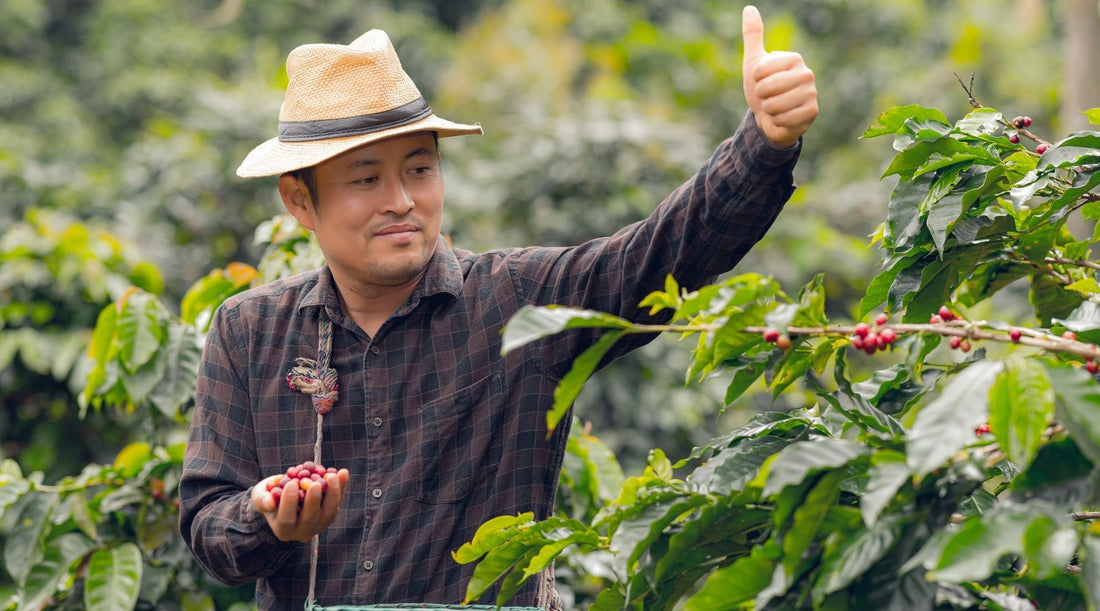
South American Coffee Beans - Unveiling the Richness of Flavours
Welcome to the captivating world of South American coffee beans, where lush landscapes and exceptional craftsmanship converge to create some of the finest brews on the planet. We will take you on a flavourful journey through the coffee powerhouses of Brazil, Colombia, and Peru, and uncover the secrets that make South American coffee a true delight for coffee enthusiasts worldwide and we'll address some popular questions that often intrigue coffee enthusiasts along the way
Which is the best coffee of South America?
When it comes to the best coffee of South America, it's difficult to single out just one, as each country offers unique flavour profiles that cater to different taste preferences. The "best" coffee varies based on the individual's taste preferences and desired flavour profile
As a general rule of thumb Brazil is known for its smooth and chocolatey flavours, while Colombia is celebrated for its milder taste with a hint of fruitiness. Peru, on the other hand, delights with its diverse range of flavours, including floral and citrus notes. Ultimately, the "best" coffee is subjective, as it depends on individual taste preferences.

What is the flavour profile of South American coffee?
The flavour profile of South American coffee is as diverse as the landscapes that nurture it. Brazilian coffee offers smooth and chocolatey flavours, with hints of nuttiness. Colombian coffee captivates with its mild and balanced taste, often accompanied by delightful fruity undertones. Peruvian coffee surprises with its versatility, ranging from floral and citrusy to nutty and chocolatey notes. These flavour profiles create a rich tapestry of taste experiences, ensuring there's something to please every coffee lover.
What coffee is from South America?
South America boasts a wide range of coffee varieties, with some of the most notable being Brazilian, Colombian, and Peruvian coffee. These countries have established themselves as major players in the global coffee industry, consistently producing high-quality beans that are highly sought after by coffee connoisseurs worldwide.
Is South American coffee Arabica?
Yes, South American coffee is predominantly Arabica. Arabica coffee is known for its superior quality, delicate flavour profiles, and pleasant acidity. The majority of coffee produced in South America falls under the Arabica category, showcasing the region's dedication to cultivating and producing exceptional beans.
What makes South American coffee so good?
South American coffee's exceptional quality can be attributed to a combination of factors. The region's favourable climate, with its optimal temperature, rainfall, and altitude conditions, provides the ideal environment for coffee plants to thrive. Additionally, the rich volcanic soil in South America contributes to the beans' unique characteristics and flavours. Finally, the expertise and dedication of local farmers and roasters, who have honed their craft over generations, play a significant role in ensuring the excellence of South American coffee.

In conclusion, South American coffee presents a mesmerising journey through a world of rich and diverse flavours. From Brazil's smooth and chocolatey notes to Colombia's milder and fruit-infused taste, and Peru's impressive range of flavours encompassing floral, citrus, and nutty profiles, South American coffee offers a sensory adventure for every coffee lover. It is great for the foodies amongst us who love to explore a range of different flavour profiles in their coffee.
As we explored the popular questions surrounding South American coffee, we discovered that the notion of the "best" coffee is subjective and depends on individual taste preferences. Nevertheless, the dedication to cultivating Arabica beans, the region's favourable climatic conditions, and the expertise of local farmers and roasters collectively contribute to the exceptional quality that makes South American coffee so revered.
So, embrace the allure of South American coffee beans, indulge in its captivating flavours, and savour the delightful richness that each cup has to offer.

